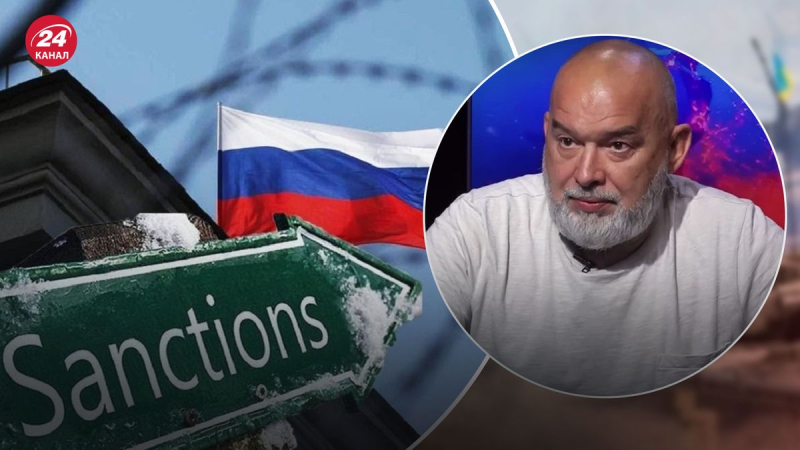
The Kremlin boasted that Western sanctions had no effect on Russia. However, in reality, the sanctions hit the Russian economy very painfully.
Political consultant Mikhail Sheitelman told Channel 24 about this. He recalled that Russia's budget deficit in January amounted to $25 billion.
According to the political scientist, it was not the Russian economy that was resistant to sanctions. And the sanctions against Russia were imposed too slowly.
“Only on February 5, the price ceiling for Russian oil products came into effect. And before that, Europe had been buying Russian gasoline, diesel and fuel oil for a year since the start of the war,” Sheitelman said.< /p>
A catastrophic “hole” in the Russian budget
He stressed that as soon as the West took on oil, the result of the sanctions immediately appeared.
The basis of the well-being of Russians is oil, not even gas. Although the Russian leadership also lost gas when it blew up its Nord Streams itself, the political strategist said.
According to Sheitelman, a budget deficit of $25 billion is indeed a huge figure.
“In January, the Russian budget received $19 billion in revenues. And budget expenditures amounted to $44 billion. That is, a “hole” in the budget of $25 billion is a disaster,” the political strategist emphasized.
Russia's economic “goodwill gesture”
He noted that Russia's spending increased 1.5 times over the past year. This was due to the need to maintain the army.
The minus in the budget will accumulate monthly. The Russian authorities also pleased with the statement that from March it will “voluntarily” reduce oil production by 500,000 barrels per day. Here is another “goodwill gesture,” Sheitelman said.
According to him, Russia has no other options but to reduce oil production. After all, the Russians have nowhere to put it.
“And mothballing oil wells is a very complicated process. This is not Saudi Arabia or Iran, where such wells can be closed and opened at the touch of a button,” Sheitelman said.
Ordinary Russians are used to difficulties
The budget deficit will eventually be felt by ordinary Russians. However, according to the political strategist, the Russian population has become accustomed to the shortage of goods on the shelves. He recalled that a number of sanctions were imposed against Russia back in 2014 – after the occupation of the Crimea.
Then, in response to the economic sanctions of Brussels, the Russian authorities decided defiantly to abandon Western products. The aggressor country has announced an import substitution program. However, this didn't work very well.
Wealthy residents of St. Petersburg travel to Finland on weekends to shop for cheese. Because in Russia in stores – not cheese, but a curd product. You put it in the refrigerator, and orange paint drips from it a day later,” Sheitelman noted.
However, according to the political strategist, ordinary Russians are used to products of this quality.
Russians will stop defending the Putin regime
Therefore, further restrictions and difficulties due to sanctions, although they may cause some discontent, will not shock the majority of Russians.
I don't believe a Russian uprising is possible. But when you have nothing, you will not fight for what you have now,” Sheitelman said.
He added that in the future, the level of support for the authorities in Russia will decrease.
“The Russians will not overthrow Putin's regime. But they will stop defending him,” the political consultant said.
Russia's problems: latest news
- < li> The Financial Times noted that Russia's energy revenues have almost halved. The combination of this with the increase in defense spending to wage war in Ukraine leads to large economic losses.
- Russian opposition politician Gennady Gudkov said that the Russian budget is now “total f*ck”, this word most reflects the current situation .
- According to Gudkov, financial changes are definitely coming, and they will destroy the entire part of the budget aimed at the life of ordinary Russians – education, medicine, transport, social needs, etc.

